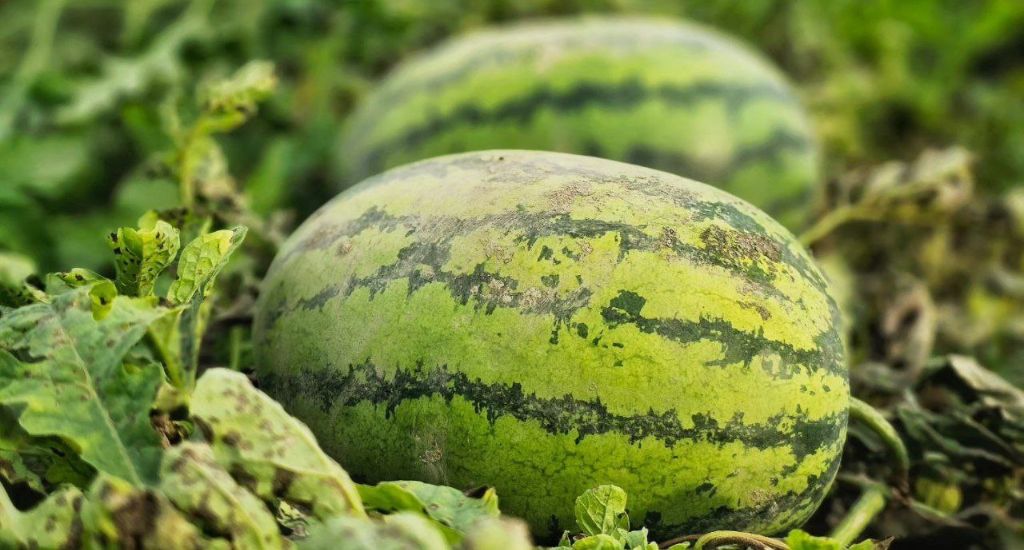In a plot twist that even Bollywood would envy, the quaint village of Batwina in Ganderbal of central Kashmir has ditched its grape gig for a juicy watermelon adventure. Yes, you read that right – the village realised it’s better to be the cool, refreshing superhero of summer fruits than just another grape in the vineyard.
Nazir Ahmed, a 42-year-old farmer from Batwina, recounted his surprise when he discovered the staggering demand for watermelons in Kashmir as the sun beat down relentlessly during the hottest summer days in 2022.
During the holy month of Ramadan last year, the predominantly Muslim region consumed a staggering 100 watermelon-laden trucks each day, amounting to Rs 5 crore in value. This revelation prompted Ahmed to expand his watermelon cultivation from four to six kanals of land this year, a decision that has yielded promising returns.
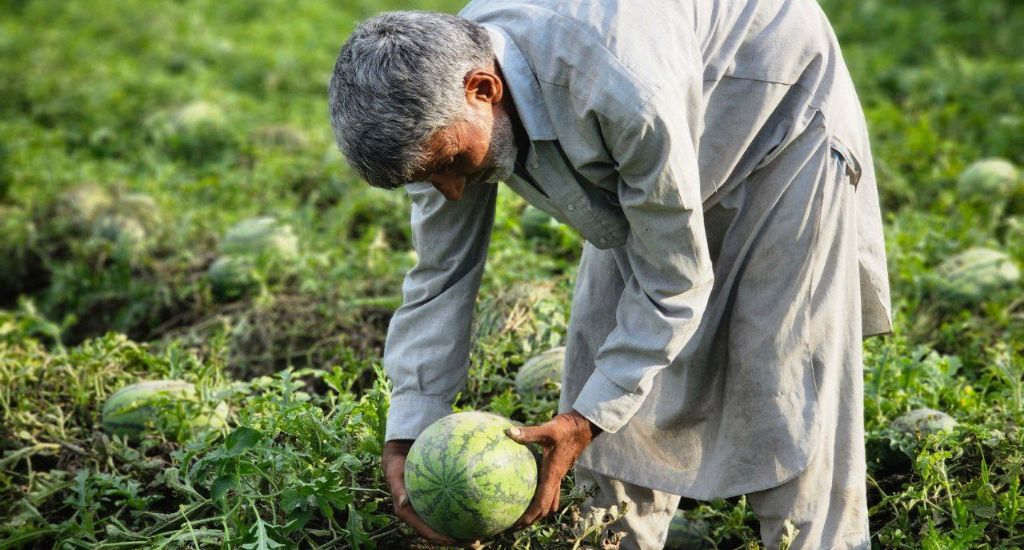
The transformation is not limited to Ahmed alone. Batwina, home to around 300 households, has witnessed a collective shift as all farmers have adopted watermelon farming with unwavering enthusiasm. Modern agricultural techniques have been embraced by all, leading to bountiful harvests that have not only transformed local livelihoods but have also piqued the interest of other farmers across the Kashmir valley.
Also Read: Kashmir’s purple revolution with lavender cultivation
Notably, Batwina’s acclaim extends beyond watermelon. The village is renowned for its exceptional grapes and cherries, making its foray into watermelon farming all the more remarkable. “Batwina is now known as the watermelon village of Kashmir,” said Ahmed.
No pink dye or pesticides
A noteworthy aspect that sets Batwina’s watermelons apart is their purity. Many watermelons from different parts of India are known to be chemically treated. Local cultivators express concerns over the usage of toxic dyes, particularly erythrosine, a pink dye often used to attract customers in the market.
Our watermelons remain untainted, aligning with a growing consumer preference for natural produce.
Batwina’s produce boasts being pesticide-free, a fact that has only added to its popularity.
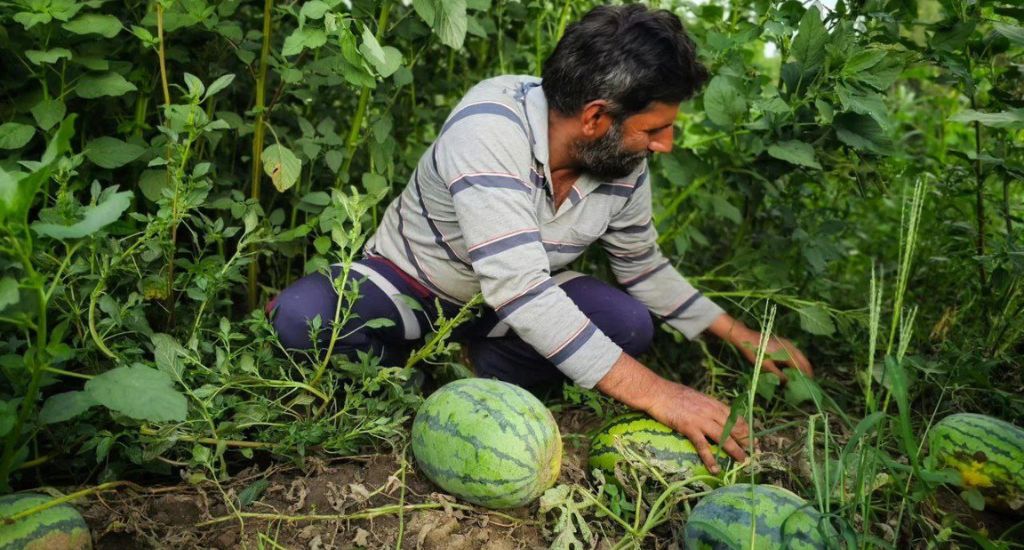
“Our watermelons remain untainted, aligning with a growing consumer preference for natural produce,” Zahoor Ahmed, another farmer from the village, said.
Batwina has witnessed a burgeoning shift in its agricultural landscape. A local agricultural department official, speaking anonymously, disclosed that 100 to 300 kanals of land around the village are dedicated to watermelon cultivation.
The cultivation of watermelons has not only garnered significant profits but has also opened the doors to transformed livelihoods for locals. This shift has transformed Zahoor’s own livelihood from a labourer to a successful watermelon cultivator, starting out with 500 seeds and yielding a good harvest.
Also Read: How Kud has become Kashmir’s sweet-making powerhouse
Despite the success, the village has encountered challenges due to the early arrival of watermelons from other states, impacting local sales. However, fruit retailer Tariq Zafar from Budgam assured that modern storage facilities and advanced technologies ensure a consistent supply of fruits in the market.
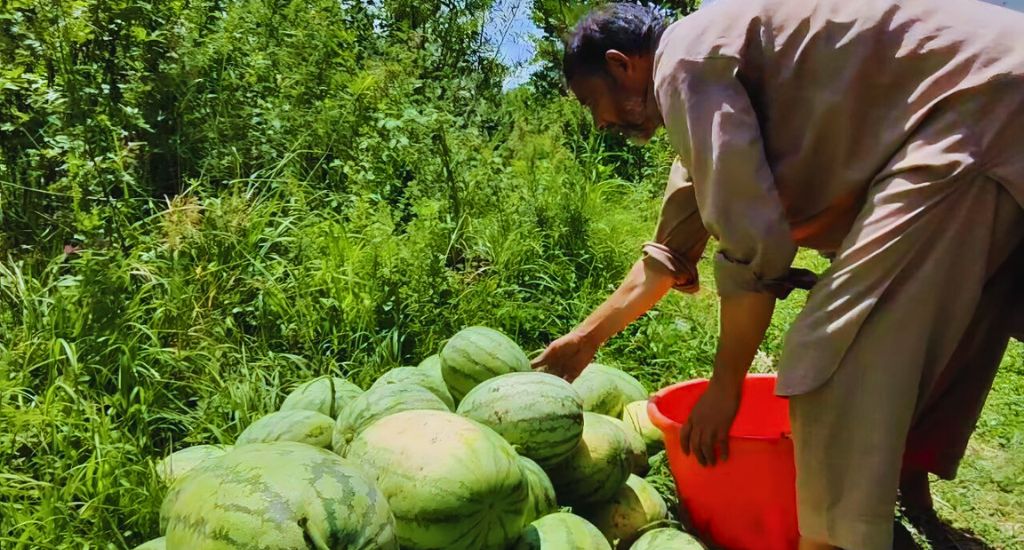
The entire process kicks off in March and April as fields are prepared and seeds are sown under greenhouse projects. The harvest, ripe by July-August, paves the way for subsequent crops, reflecting a sustainable agricultural cycle.
Job for the jobless
As unemployment surges in Kashmir, educated youths in Batwina are embracing watermelon cultivation as a means of financial sustenance. Gowhar Malik, a 29-year-old with a degree in computer application, reflects the changing narrative of employment in the region.
He explained that cultivating watermelons on just three kanals of land can yield a profit of up to Rs 3 lakh. “Starting my own watermelon farm has substantially improved my financial situation,” he said.
Kashmir’s economy heavily relies on horticulture, a sector contributing approximately Rs 10,000 crore in annual revenue, supporting the livelihoods of around 35 lakh people. The expansion of watermelon farming to colder regions like Kashmir is a testament to the adaptability of agricultural practices and the potential for growth in unexpected places.
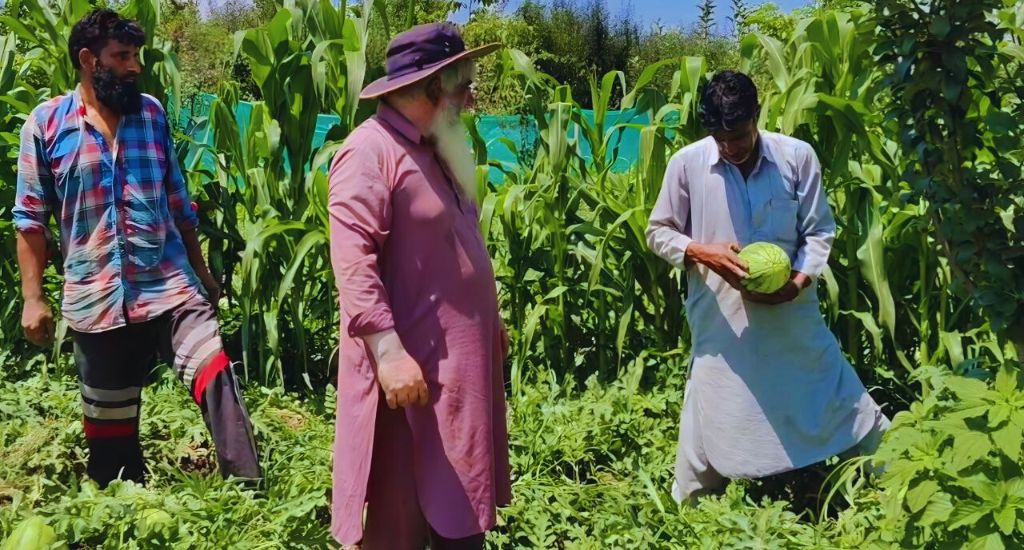
Acknowledging the changing seasons, the agricultural department has introduced genetically modified seeds in collaboration with local farmers, leading to successful experimentation. This innovation ensures a year-round supply of melons.
Also Read: Women suffer as Kashmir garlic faces market blues
An official from the agricultural department highlights that the region’s unique climate allows it to produce melons even after the growing season has concluded in other parts of India.
The horticulture department, recognising the significance of this transformation, plans to organise awareness events in Batwina. As colder regions of Kashmir embrace watermelon cultivation, the department plans to provide resources and training to local farmers, including quality seeds and fertilisers, preparing them to navigate climate change-related challenges and optimise yields.
The lead image at the top shows a ready-to-eat watermelon grown in Kashmir’s Batwina village that has ditched its grape gig for a juicy watermelon adventure (Photo by Sameer Hussain)
Sameer Hussain is an independent journalist based in Kashmir.
